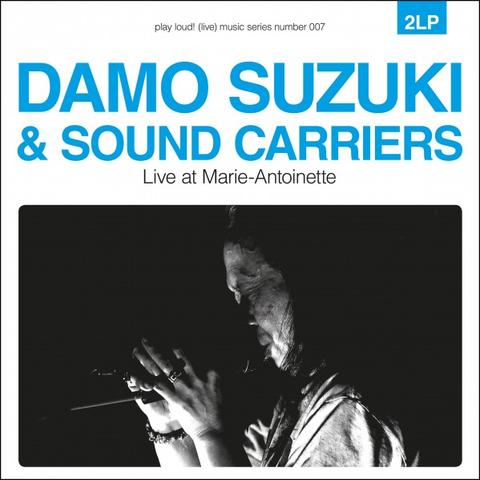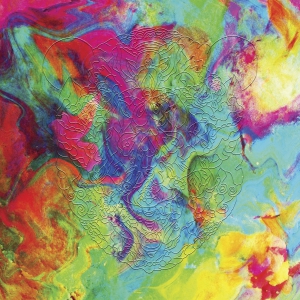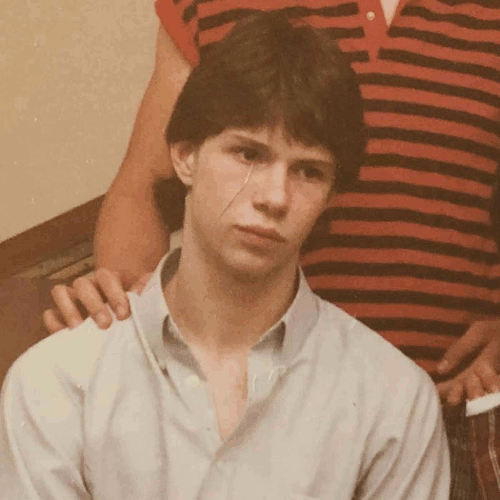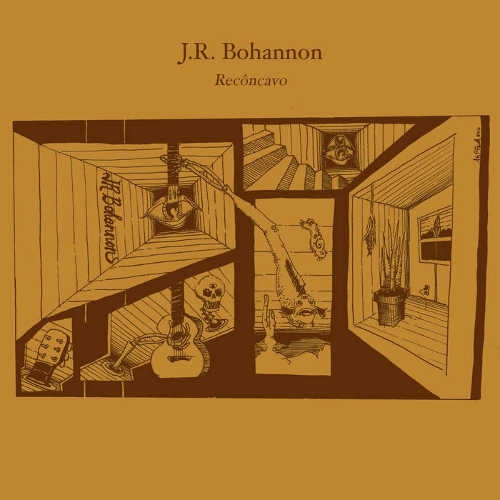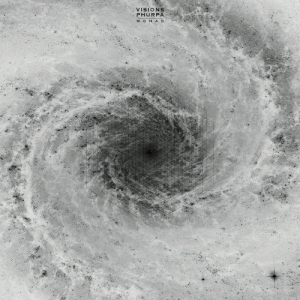 You can never rely on the bloody British weather. Given that until last week April had been unseasonably cold and damp – a fifteen-minute walk from Brockley Station felt more like battling against the January elements than revelling in the joyous unfolding of spring – I was hoping that a small silver lining to such a meteorological cloud might be the right atmospheric conditions to bury myself in Monad and soak up at a physical, as well as mental, level.
You can never rely on the bloody British weather. Given that until last week April had been unseasonably cold and damp – a fifteen-minute walk from Brockley Station felt more like battling against the January elements than revelling in the joyous unfolding of spring – I was hoping that a small silver lining to such a meteorological cloud might be the right atmospheric conditions to bury myself in Monad and soak up at a physical, as well as mental, level.
The enormous, cavernous chill of the album, I felt, would have synchronised nicely with the dank, enveloping gloom outside my front door. Taking on the role of the Michael Fishi of Freq, I might have sat back and said smugly, “Earlier on today apparently a Russian gentleman rang and said he had heard a heatwave was on the way. Well I can assure people reading, don’t worry, there isn’t.”
And now, blow me if I’m not sitting here in the middle of heatwave – the park chock-full of near-naked sunbathers turning slowly on their towels like so many rotisserie chickens, dogs panting desperately by empty silver water-bowls under shop awnings and Mr Whippy vans stripped bare of everything save those nasty, cheap orange lollies. What’s a poor boy to do? With the living rooms windows open and the kind of lovely cool breeze The Isley Brothers wrote songs about blowing on through, I feel more like spinning some classic Sixties psyche, “Dandelion Seeds” by July maybe, or some ragamuffin musings from the sun-baked streets of uptown Kingston: Dr Alimantado’s Best Dressed Chicken In Town, perhaps.Turning a necessity into a virtue, though, it’s an interesting experiment in critical distance to immerse oneself in such a recording such as Monad in conditions so antithetical to its sonic architecture.
Monad is the new collaboration between Moscow-based “Tibetan monastic choir” Phurpa (imagine SUNNO))) with overtone vocal chords instead of overdriven guitars) and Berlin-based artist, and occasional metalhead, Canadian Frederic Arbour (trading under the moniker of Visions since 2004). And to be sure it’s a dense, dark affair. Comprising four extended pieces that range across a spectrum of reverberant bass from massive to really massive, if it’s heavy, transcendental infra-sound dronescapes you’re after, you’ve come to the right place.Although both parties feel as though they are deliberately throttling down the intensity a little, the pay-off is room for the pieces to really breathe, expanding out like a slow-rolling fogbank. One comes away sensing a very tangible and austere vastness of scale. Imagine hanging out with a group of large and rather stand-off-ish whales in the Ox Bel Ha cave system, and that starts to get you there.
To link to a compatriot of Phurpa’s de facto leader Alexey Tegin, and the band in general, this is the aural equivalent of Andrey Tarkovsky at this most mystical and delicate. Throwing myself deep into the final track, “Reminiscence”, it conjured up the extended closing scene of the Tark’s penultimate masterpiece, 1983’s Nostalghia,ii in which the protagonist, Gorchakov, is asked to cross an ancient sulphur pool carrying a lighted candle as an act of faith. The astonishing final shot of the film – a slow track-back from Gorchakov and his dog to reveal their surrounding in the Tuscan Abbey of San Galgano – was meant to be soundtracked by this.Given that Tegin is a man who takes his spirituality very seriously, burns dried Mongolian juniper bushes before a ritual and says things like “There is power in food. If you want to feel wild like a tiger or shark you need raw meat, maybe a little salt and pepper. I like horse meat, in Moscow this is possible. When you eat it, there is fire inside you. Sometimes your body says ‘stop fire’, then you drink yoghurt. This is for PHURPA, action aspect – if you instead want information from space you drink only water and eat vegetables”, then such cinematic comparisons may seem a tad profane to him. Yet no lesser artist than Ingmar Bergman said that Tarkovsky had invented “a new language, true to the nature of film, as it captures life as a reflection, life as a dream.” And there’s a meaning in that to which Tegin could surely not object.
The windows may still be open, the curtains hanging in the window, in the evening on this Sunday night, but lost amidst the immense echoing hollows of Monad, a wintry twilight is settling in. Baby, it’s cold inside.-David Solomons-
